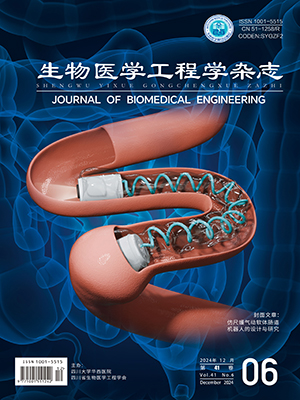| 1. |
中华医学会感染病学分会. 中华医学会肝病学分会. 慢性乙型肝炎防治指南(2019年版). 中华肝脏病杂志, 2019, 27(12): 938-961.
|
| 2. |
Lee H W, Lee J S, Ahn S H. Hepatitis B virus cure: targets and future therapies. Int J Mol Sci, 2020, 22(1): 213.
|
| 3. |
Sarin S K, Kumar M, Lau G K, et al. Asian-Pacific clinical practice guidelines on the management of hepatitis B: a 2015 update. Hepatol Int, 2016, 10(1): 1-98.
|
| 4. |
Terrault N A, Lok A S, McMahon B J, et al. Update on prevention, diagnosis, and treatment of chronic hepatitis B: AASLD 2018 hepatitis B guidance. Hepatology, 2018, 67(4): 1560-1599.
|
| 5. |
Guo L, Wang D, Ouyang X, et al. Recent advances in HBV reactivation research. Biomed Res Int, 2018: 2931402.
|
| 6. |
Sarin S K, Choudhury A. Management of acute-on-chronic liver failure: an algorithmic approach. Hepatol Int, 2018, 12(5): 402-416.
|
| 7. |
Aygen B, Demir A M, Gümüş M, et al. Immunosuppressive therapy and the risk of hepatitis B reactivation: consensus report. Turk J Gastroenterol, 2018, 29(3): 259-269.
|
| 8. |
Hwang J P, Barbo A G, Perrillo R P. Hepatitis B reactivation during cancer chemotherapy: an international survey of the membership of the American Association for the Study of Liver Diseases. J Viral Hepat, 2015, 22(3): 346-352.
|
| 9. |
田文广, 何平, 万克强, 等. 核苷类似物防治化疗后乙肝病毒再激活的临床疗效分析. 中国新药与临床杂志, 2015, 34(7): 560-564.
|
| 10. |
Yeo W, Chan P K, Hui P, et al. Hepatitis B virus reactivation in breast cancer patients receiving cytotoxic chemotherapy: a prospective study. J Med Virol, 2003, 70(4): 553-561.
|
| 11. |
Huang Gang, Lai E C, Lau W Y, et al. Posthepatectomy HBV reactivation in hepatitis B-related hepatocellular carcinoma influences postoperative survival in patients with preoperative low HBV-DNA levels. Ann Surg, 2013, 257(3): 490-505.
|
| 12. |
Shi Y, Zheng M. Hepatitis B virus persistence and reactivation. British Medical Journal, 2020, 370: m2200.
|
| 13. |
Bukowski K, Kciuk M, Kontek R. Mechanisms of multidrug resistance in cancer chemotherapy. Int J Mol Sci, 2020, 21(9): 3233.
|
| 14. |
马军, 秦叔逵, 缪晓辉, 等. 淋巴瘤免疫化疗HBV再激活预防和治疗中国专家共识. 临床肿瘤学杂志, 2013, 18(10): 935-942.
|
| 15. |
Cao X, Wang Y, Li P, et al. HBV reactivation during the treatment of non-Hodgkin lymphoma and management strategies. Front Oncol, 2021, 11: 685706.
|
| 16. |
Chen X, Hu Y, Zhang W, et al. Cisplatin induces autophagy to enhance hepatitis B virus replication via activation of ROS/JNK and inhibition of the Akt/mTOR pathway. Free Radic Biol Med, 2019, 131: 225-236.
|
| 17. |
Li X, Pan E, Zhu J, et al. Cisplatin enhances hepatitis B virus replication and PGC-1α expression through endoplasmic reticulum stress. Sci Rep, 2018, 8(1): 3496.
|
| 18. |
Zen Y, Yeh M M. Checkpoint inhibitor-induced liver injury: a novel form of liver disease emerging in the era of cancer immunotherapy. Semin Diagn Pathol, 2019, 36(6): 434-440.
|
| 19. |
Pan C, Liu H, Robins E, et al. Next-generation immuno-oncology agents: current momentum shifts in cancer immunotherapy. J Hematol Oncol, 2020, 13(1): 29.
|
| 20. |
Zhang X, Zhou Y, Chen C, et al. Hepatitis B virus reactivation in cancer patients with positive hepatitis B surface antigen undergoing PD-1 inhibition. J Immunother Cancer, 2019, 7(1): 322.
|
| 21. |
Godbert B, Petitpain N, Lopez A, et al. Hepatitis B reactivation and immune check point inhibitors. Dig Liver Dis, 2021, 53(4): 452-455.
|
| 22. |
Lee P C, Chao Y, Chen M H, et al. Risk of HBV reactivation in patients with immune checkpoint inhibitor-treated unresectable hepatocellular carcinoma. J Immunother Cancer, 2020, 8(2): e001072.
|
| 23. |
Wang J, Du L, Tang H. Suppression of interferon-α treatment response by host negative factors in hepatitis B virus infection. Front Med (Lausanne), 2021, 8: 784172.
|
| 24. |
Du L Y, Cui Y L, Chen E Q, et al. Correlation between the suppressor of cytokine signaling-1 and 3 and hepatitis B virus: possible roles in the resistance to interferon treatment, Virol J, 2014: 51.
|
| 25. |
Mücke M M, Backus L, Mücke V T, et al. Hepatitis B virus reactivation during direct-acting antiviral therapy for hepatitis C: a systematic review and meta-analysis. Lancet Gastroenterol Hepatol, 2018, 3(3): 172-180.
|
| 26. |
Huang R, Li X, He Y, et al. Recent advances in CAR-T cell engineering. J Hematol Oncol, 2020, 13(1): 86.
|
| 27. |
Yang C, Xie M, Zhang K, et al. Risk of HBV reactivation post CD19-CAR-T cell therapy in DLBCL patients with concomitant chronic HBV infection. Leukemia, 2020, 34(11): 3055-3059.
|
| 28. |
Han L, Zhou J, Zhou K, et al. Safety and efficacy of CAR-T cell targeting BCMA in patients with multiple myeloma coinfected with chronic hepatitis B virus. J Immunother Cancer, 2020, 8(2): e000927.
|
| 29. |
Li P, Zhou L, Ye S, et al. Risk of HBV reactivation in patients with resolved HBV infection receiving anti-CD19 chimeric antigen receptor T cell therapy without antiviral prophylaxis. Front Immunol, 2021, 12: 638678.
|
| 30. |
Zhang S S, Liu J X, Zhu J, et al. Effects of TACE and preventive antiviral therapy on HBV reactivation and subsequent hepatitis in hepatocellular carcinoma: a meta-analysis. Jpn J Clin Oncol, 2019, 49(7): 646-655.
|
| 31. |
Liu Shousheng, Lai Jinfa, Lyu N, et al. Effects of antiviral therapy on HBV reactivation and survival in hepatocellular carcinoma patients undergoing hepatic artery infusion chemotherapy. Front Oncol, 2020, 10: 582504.
|
| 32. |
Ziogas D C, Kostantinou F, Cholongitas E, et al. Reconsidering the management of patients with cancer with viral hepatitis in the era of immunotherapy. J Immunother Cancer, 2020, 8(2): e000943.
|
| 33. |
Karaca M, Tural D, Akar E, et al. Hepatitis B reactivation rate is higher undergoing some cytotoxic chemotherapy in patients with solid tumors: a large retrospective study. Chemotherapy, 2018, 63(5): 247-252.
|
| 34. |
Shih C A, Chen W C, Yu H C, et al. Risk of severe acute exacerbation of chronic HBV infection cancer patients who underwent chemotherapy and did not receive anti-viral prophylaxis. PLoS One, 2015, 10(8): e0132426.
|
| 35. |
Yang H C, Tsou H H, Pei S N, et al. Quantification of HBV core antibodies may help predict HBV reactivation in patients with lymphoma and resolved HBV infection. J Hepatol, 2018, 69(2): 286-292.
|
| 36. |
European Association for the Study of the Liver. EASL 2017 Clinical Practice Guidelines on the management of hepatitis B virus infection. J Hepatol, 2017, 67(2): 370-398.
|
| 37. |
Pawłowska M, Flisiak R, Gil L, et al. Prophylaxis of hepatitis B virus (HBV) infection reactivation-recommendations of the working group for prevention of HBV reactivation. Clin Exp Hepatol, 2019, 5(3): 195-202.
|
| 38. |
Su Y C, Lin P C, Yu H C, et al. Antiviral prophylaxis during chemotherapy or immunosuppressive drug therapy to prevent HBV reactivation in patients with resolved HBV infection: a systematic review and meta-analysis. Eur J Clin Pharmacol, 2018, 74(9): 1111-1119.
|
| 39. |
Chauhan R, Lingala S, Gadiparthi C, et al. Reactivation of hepatitis B after liver transplantation: current knowledge, molecular mechanisms and implications in management. World J Hepatol, 2018, 10(3): 352-370.
|




